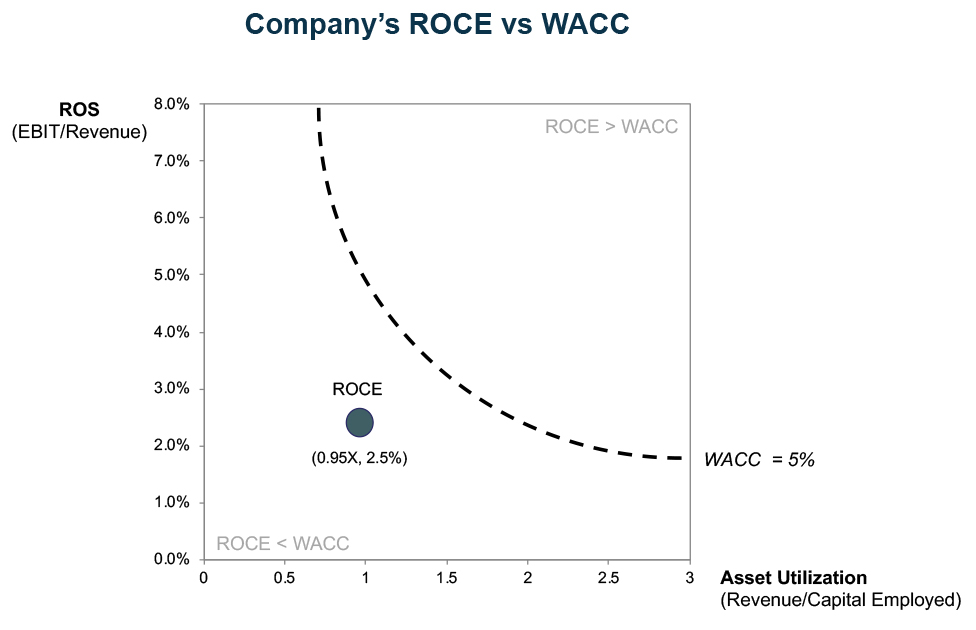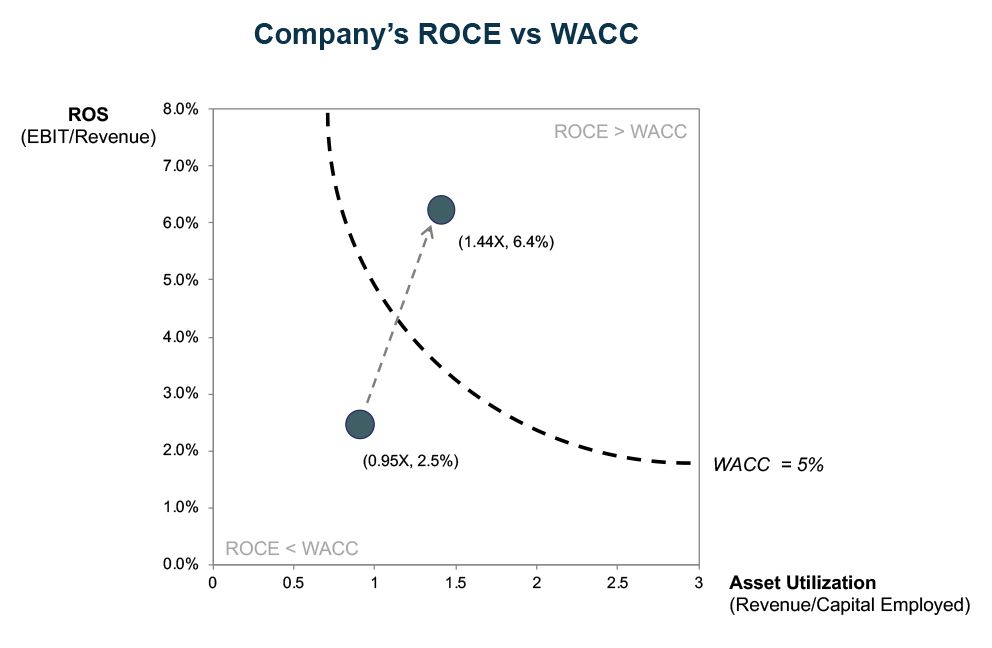Rationalizing product lines and establishing
Engine Shop provided jet engine repair services for CF6 engines and was affiliated with a large airline. The $235 million business had been experiencing low profitability (2.5% EBIT margin). It was also experiencing erosion of market share, having lost two airline customers in the last year. The parent airline had adopted a strategy of core business focus, increasing pressure on Engine Shop for financial performance. The objective was to improve Engine Shop’s financial performance and stem further erosion of market share.

Company exited CF6-80C2 engine-pooling service, adopted flight-by-hour service for older generation engines, and matched market pricing – stemming further market share erosion.
Also established a productive core to align TAT time to customer demand.
- Reduced inventory across all engines, modules, and parts by $84 million (40% reduction)
- Improved EBIT by $9 million, achieving EBIT margin of 6.4%
- – Reduced associated cost of inventory by $2.0 million
- – Reduced cost of labor by $3.1 million
- – Adopted fair-market prices and increased net margin by $3.6 million
- Improved internal operational efficiencies by shortening engine repair TAT from 60 days to 33 days.
The net effect was an improvement of ROCE from 2.4% to 9.2%.

We performed a strategic assessment, including analysis of the industry, market demand, customer requirements, competition, activity based costing (product line profitability), value proposition, and relative cost position.
Findings
Our analysis revealed gaps in Engine Shop’s value proposition and business model
- It was offering Engine Pooling contracts (7% net margin) for CF6-80C2 engine overhauls though customers preferred Time & Material contracts (1.9% net margin)
- Engine pooling covered operational inefficiency stemming from long repair turnaround times (TATs)
- Customers demanded TAT of 33 days but Engine Shop was operating at TAT of 60 days
- By offering Engine Pooling, the Engine Shop was swapping out engines, modules, and parts with the parent airline’s inventory to be able to deliver repaired engines in 33 days
- Large amounts of excess inventory went utilized inefficiently
- Also found that Engine Shop adopted preferential pricing to parent airline in exchange for using its inventory of spare engines, modules, and parts
Determination
- Shortened repair turnaround time (TAT) from 60 to 33 days to deliver CF6-80C2 overhauls on time
- Also, reduced TAT from 60 to 33 days across all engines, improving operational efficiency and eliminating excess inventory (replacements of spare engines, modules, and parts). Reduction is TAT included:
- 24 days of internal process improvement
- In parallel, 14 days of external process improvements (transport and logistics)
- 5 days by moving from 2 work-shifts/week to 3 work-shifts/week
- A reduction in TAT from 60 days to 33 days lessened amount of inventory of spare parts, engines and modules by $81 million, including
- $51.7 million of pooled parts
- $14.2 million of engines
- $11.3 million of modules
- $4.00 million of new parts and consumables
- A reduction in TAT and inventory drove two types of cost savings
- $3.14 million in labor
- $2.03 million in cost of inventory
- Instituting fair-market pricing with parent airline provided a price lift of $3.6 million

